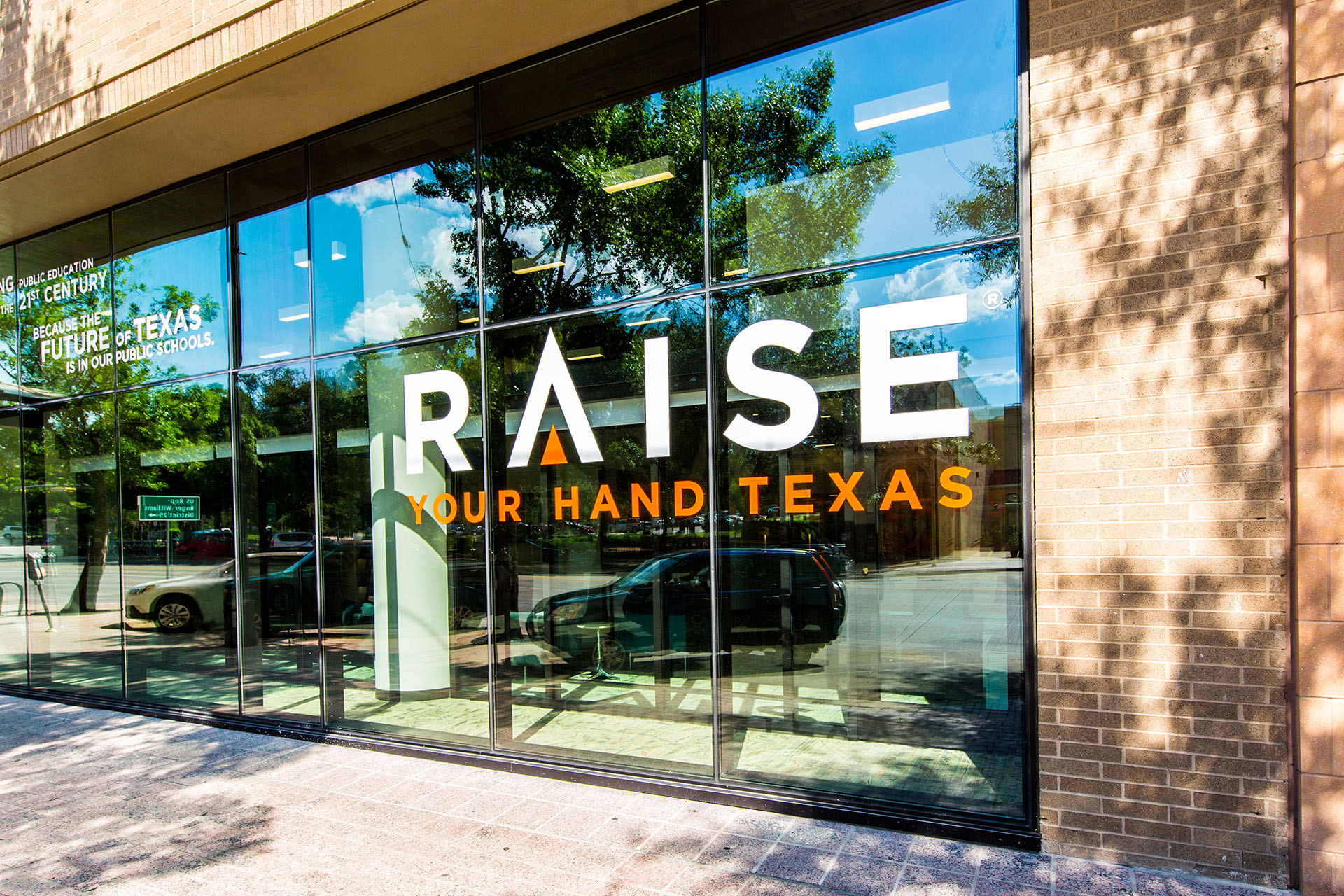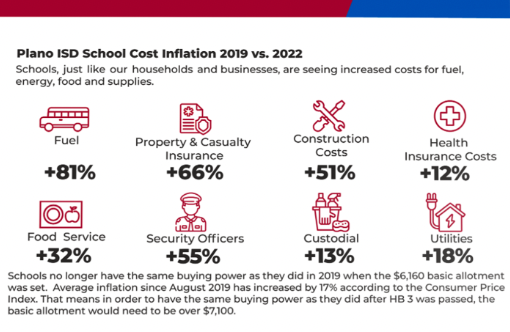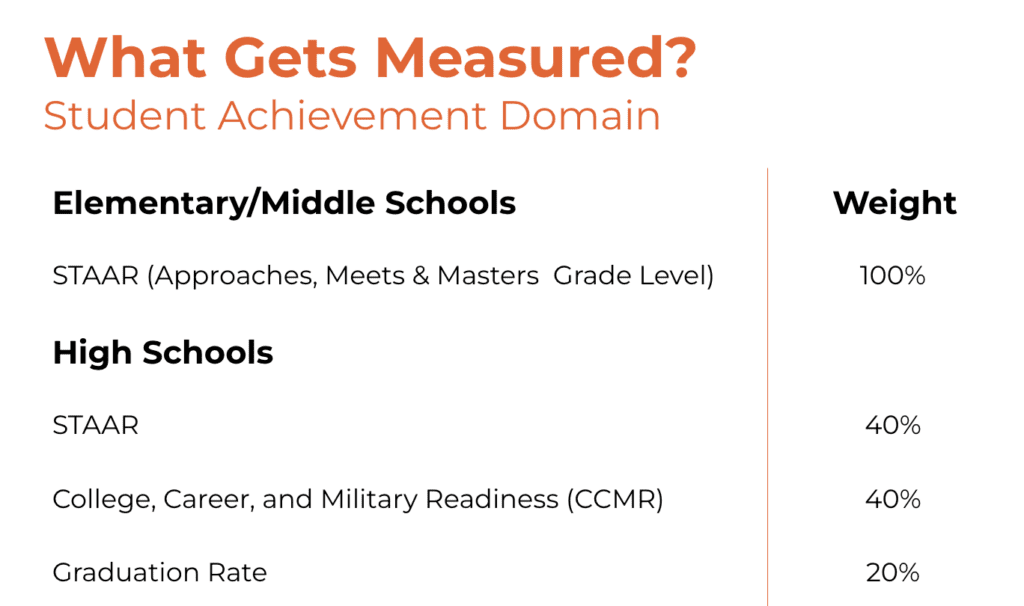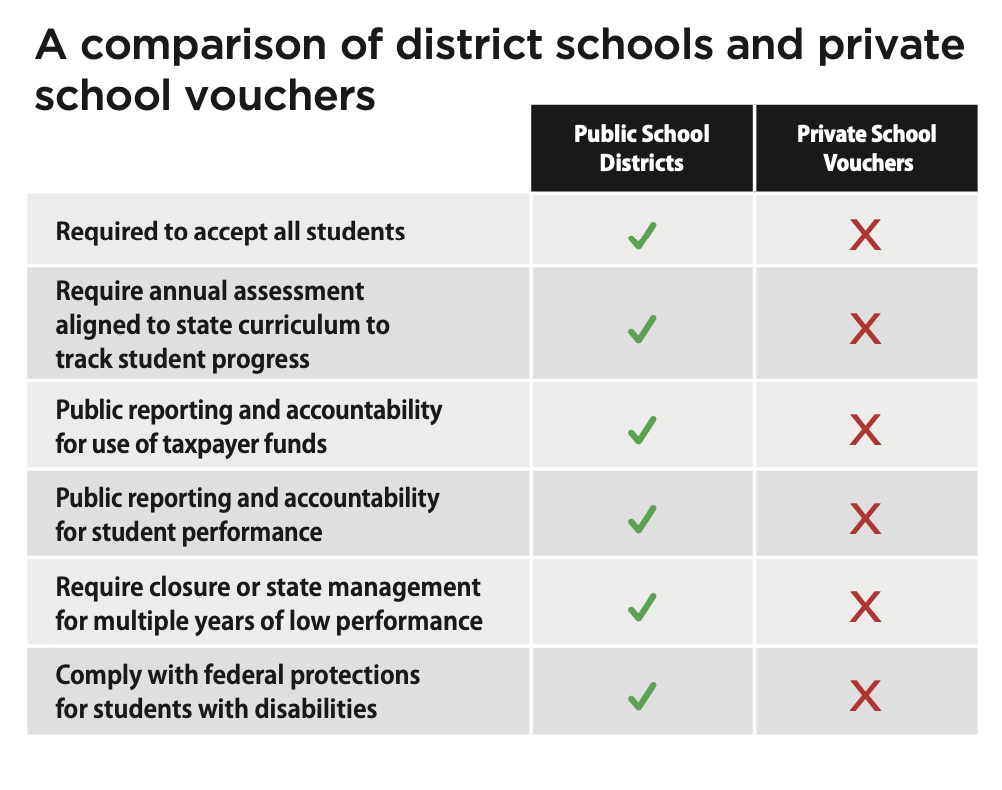
categories
Texas House Select Committee on Educational Opportunity and Enrichment

July 12, 2023
Raise Your Hand Texas submitted the following written testimony in response to the Texas House Select Committee on Educational Opportunity and Enrichment Hearing on July 12, 2023. Raise Your Hand Texas will continue to keep the public informed through written and invited/public testimony on the issues related to public education in Texas.
Written Testimony by Dr. Michelle Smith
Executive Director
Raise Your Hand Texas
Before the Texas House Select Committee on Educational Opportunity and Enrichment
The Honorable Brad Buckley, Chair
Key Points of Raise Your Hand Texas Testimony
- The Legislature should ensure any education legislation on assessment and accountability, school and teacher funding, or high-quality school choice, stand alone as separate bills.
- Schools are in need of financial support to address the rising costs from double-digit inflation to retain the best educators.
- Raise Your Hand Texas supports a rigorous assessment accountability system that does not over-rely on assessment and incorporates more indicators that showcase the employment needs of the 21st century.
- Raise Your Hand Texas especially opposes any form of voucher triggered by an accountability system primarily focused on a single assessment, or vouchers that fail to address the current funding needs for our students with special education in our public schools.
Position: Neutral, Written and Verbal
Raise Your Hand Texas (RYHT) applauds the efforts of the Texas House to research and create recommendations to ensure high-quality educational opportunities for our students, update our accountability system to be more responsive to the needs of communities, and find meaningful educator supports to keep our best teachers in the classroom. These topics are vast and vitally important for the future of our state, and each deserves particular attention.
Raise Your Hand Texas firmly believes any one of these topics is too important to be compiled into one piece of omnibus legislation. Individual pieces of legislation for each topic will allow the House and Senate to fully debate each issue on its own merit, with each receiving the necessary attention warranted by the magnitude of the subject matter. Any one of these topics would be a capstone for a legislative session, and the efforts to tackle these issues are laudable and appreciated.
School Funding Lags Behind Inflation, Impacting Educational Opportunities:

As the state increases their share of education funding in the currently proposed tax legislation through compression and hold harmless through homestead exemptions, the overall funding for Texas public schools will not increase for our public school students because the basic allotment (BA) remains stagnant. Right now, Texas is more than $4,000 behind the national average in per-pupil funding and almost $7,500 behind the national average in teacher pay.
With multiple school districts feeling the crunch of rising costs to maintain current school programs, many school leaders are dipping into fund balances meant for emergencies in order to keep paying teacher contracts and maintain extracurricular and cocurricular activities. Inaction from the state leaves our schools no choice but to cut programs, increase class sizes, and artificially decrease the quality of our schools.
While the BA provides the largest flexible relief to inflation, the state should continue to investigate the benefits of increasing teacher support through scholarship programs, increasing the mentor allotment, and providing increased funding for teacher residency programs. The more the state can defray the financial burden of entering the teaching profession, the more likely a more diverse group of educators will emerge, ones who can remain financially stable enough to stay in the profession long term. With over $10 billion left in our state budget from a historic $33 billion in excess revenue, the legislature still has an opportunity to go above and beyond what has already been set aside in the regular session budget through supplemental funding in a special session on educational opportunities.
Increase Rigorous Accountability Indicators, Decrease the Emphasis of STAAR
Before the start of the 88th legislative session, RYHT embarked on a statewide listening tour, surveying over 15,600 Texans about the kind of public accountability system they want for students in the 21st century. Texans want a more robust accountability system, delivered through a multi-faceted approach with various indicators of academic attainment that de-emphasize the overall impact of STAAR on a school’s letter grade.
In particular, when looking at how our elementary and middle schools are rated in the A-F accountability system, Texans and RYHT are hopeful the state can find high-quality indicators that have been successful in other states to show the success of our students’ academic progress and outcomes. Including metrics like full-day Pre-K enrollment, career exploration opportunities, and early childhood literacy progress, which all drive the long-term education success of students, would be an improvement on our current system.

While there is still more to do to create a nuanced accountability system expanding CCMR opportunities for our 9-12 students outside of our STAAR exam, it truly is our youngest students–those whose campuses receive letter grades based entirely on STAAR scores–who are suffering the most from an outdated mode of test-based accountability.
All of that to say, RYHT is not advocating to eliminate the STAAR test. We still need to have a form of assessment that allows educators to cater their instruction to the learning needs of each student. The transition to a through-test model as seen in the TTAP Pilot that looks at how a student is achieving at the beginning, middle, and end of the year is a step in the right direction for real-time updates to instruction. However, we caution modeling after the Florida through-test model which showed the through-test added more time for testing than the summative test given on one day once a year. Moving our assessment program to multiple tests throughout the year, if done to expand into formative assessment, needs to be balanced and not spend too much time testing and preparing for one test.
Quality Public School Choice
As Texas school districts face record inflation and an ongoing teacher shortage, the Texas Legislature should not invest its time and resources in programs that fail to support all of our 5.4 million public school students. Texas students benefit from an already robust list of public school choice options ranging from Career Technical Education (CTE), magnet programs, charter schools and virtual education that offer students a choice across the entire state with robust public accountability for how the resources are being spent. And even yet, while we have all of these quality public school choice options, there is always room for improvement.
As the select committee begins to make recommendations for school choice options that are accountable to taxpayers, we ask the members to consider two suggestions in your decision-making; any school choice option should prioritize the needs of students and maintain their protections, and any education program should have both educational and financial accountability for parents and taxpayers that is easily accessible.

Recent legislation that looked to create a private school voucher, also known as Education Savings Accounts, did not sufficiently meet the bare minimum standards of maintaining student protections for special education, or provide the necessary data reporting for parents and taxpayers to make informed decisions. More importantly, voucher programs like the ones proposed this session do not help our students improve academically.
Recent research on our country’s longest and largest voucher programs shows little to no improvement in student test scores or academic achievement over time, as well as a negative impact on college enrollment and completion rates for disadvantaged students. Texas should not divert public funds to private vendors that are unaccountable and are not required to properly serve all of our students.
For decades, Texas has been a leader in holding public schools accountable. Parents and other stakeholders deserve consistent and comparable information about school performance. Voucher
proposals have not required private schools to serve all students and meet the same accountability standards as public schools.
Conclusion:
The appointment of the House Select Committee on Education Opportunity and Enrichment allows the legislature to press reset on discussions from the session regarding how to drive long-term improvements to our public school system. Raise Your Hand Texas will continue to support the Legislature’s efforts in increasing the per-pupil funding to the national average, updating our accountability system to measure what truly matters, and creating and maintaining quality public school options that support our students first and foremost before lining the pockets of private vendors. These are monumental questions and topics, but we know the Texas legislature is up to the task of improving student outcomes across the state.



